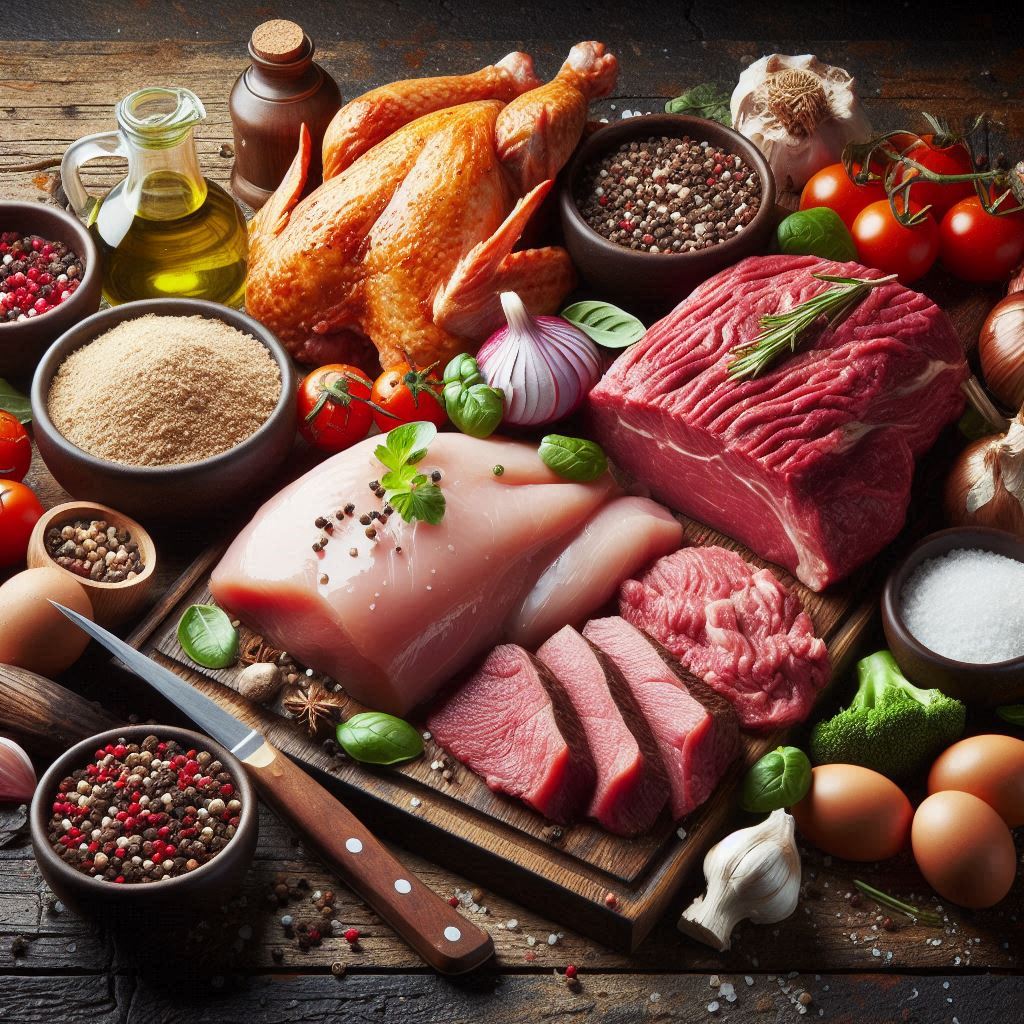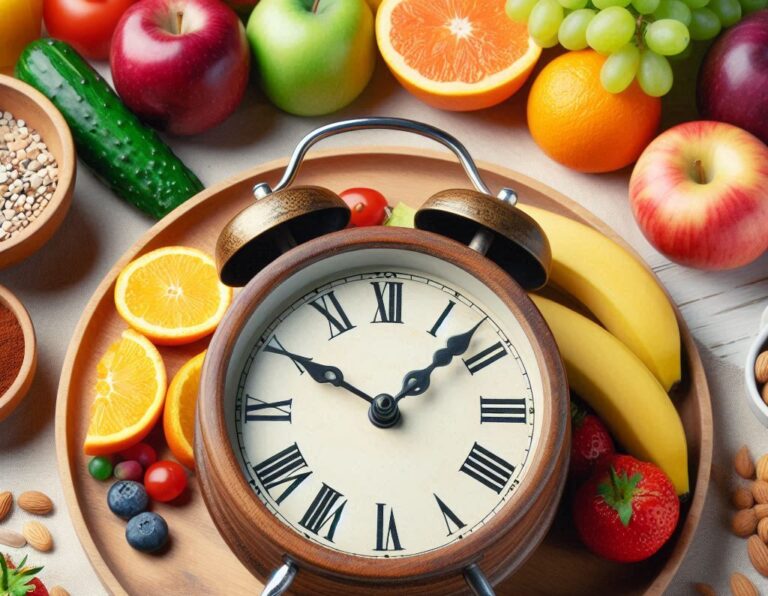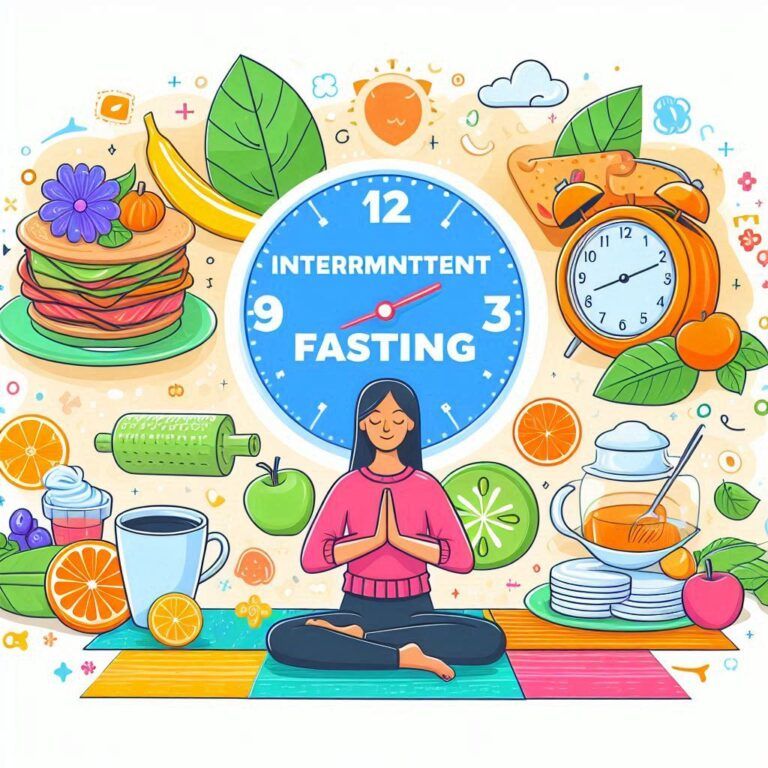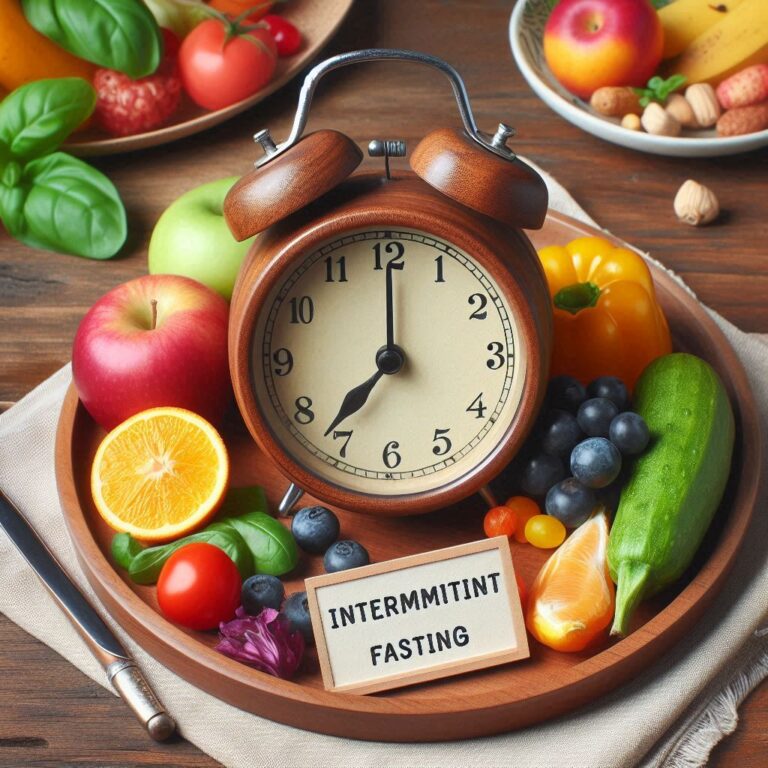What Are The Best Foods To Eat While Intermittent Fasting
I’m here to help you navigate the world of intermittent fasting, focusing on the best foods to eat while intermittent fasting during your feeding windows. Intermittent fasting isn’t just a dietary trend; it’s becoming a lifestyle choice for those seeking to improve their health and well-being.
You’ll discover the critical role food selection plays during your eating window. Choosing the right foods will help you fast, keeping you satiated, energized, and aligned with your health goals.
Intermittent fasting isn’t just about abstaining from food for a certain number of hours; it’s about being strategic with your nutrition when you eat. Whether you’re an experienced faster or just starting, getting your food choices right is crucial to optimizing the rejuvenating effects of intermittent fasting.
In the upcoming sections, I’ll discuss the best food groups to include in your intermittent fasting routine. We’ll explore high-quality proteins that support muscle health, healthy fats that keep your brain in shape, and complex carbohydrates that provide the slow-releasing energy your body craves.

Optimal Foods to Consume During Intermittent Fasting
When you’re intermittent fasting, the eating window is just as crucial as the fast itself.
The key is to consume high-quality nutrients during your eating periods. I’m here to guide you through the best choices to help you feel great and sustain you through your fasting period.
High-Quality Proteins
Proteins are the building blocks of your tissues and muscles. Choosing lean meats like chicken and turkey is a strategic move for essential muscle repair and maintenance. Similarly, fish and seafood such as salmon and tuna provide omega-3 fatty acids perfect for heart and brain health.
Legumes, tofu, and tempeh are my go-to for my plant-based friends. They’re packed with protein and adaptable to various recipes, providing a savory foundation for any meal.
Healthy Fats
Healthy fats are your secret weapon for staying full and keeping your brain sharp. Avocados are loaded with monounsaturated fats that benefit your heart. Seeds and nuts like flaxseeds, chia seeds, and almonds have essential fatty acids that your body can’t produce alone.
Nourishing oils like olive and coconut oil add more flavor to your meals. They also offer quick-metabolizing energy, perfect for your fasting lifestyle.
Complex Carbohydrates
Carbohydrates like whole grains, sweet potatoes, and squash are your allies. They break down slowly, giving you a stable release of glucose that keeps you energized. In moderation, whole wheat bread and pasta can be excellent choices for sustained energy.
Including Micronutrients and Hydration in Your Diet
When focusing on intermittent fasting, it’s crucial not to overlook micronutrients and hydration. Your food should be nutrient-dense and filling.
Vegetables offer a variety of minerals, vitamins, and fiber that are essential for smooth body function.
Leafy greens like spinach, kale, and arugula are rich in magnesium and iron, supporting energy levels and enzyme function. Cruciferous vegetables like cauliflower, broccoli, and Brussels sprouts contain antioxidants that combat oxidative stress.
Fruits such as blueberries, strawberries, and apples have a lower glycemic impact and are high in fiber and nutrients. They are delicious and supportive of your body’s needs during fasting.
Fermented foods like yogurt, sauerkraut, kefir, and kimchi introduce beneficial probiotics into your system, improving digestion and supporting your immune system.
Hydration is key. While drinking more water is essential, herbal teas and black coffee offer comfort without breaking your fast. Consider bone broth for its nutrients and low-sugar electrolyte drinks to maintain your fast during prolonged fasting periods.
Strategies for Meal Planning and Mindful Eating
Successful meal planning is crucial for intermittent fasting. Choose balanced meals with proteins, fats, and carbohydrates to support your body’s needs and maintain stable energy levels. Avoid Ultra-processed foods at all times and opt for whole, unprocessed options for maximum nutritional intake.
Mindful eating should be a cornerstone of your approach. Focus on portion sizes, eat slowly, and enjoy each bite to help you feel full and avoid overeating.
Summary: Best Foods for Intermittent Fasting
High-Quality Proteins
- Lean meats (chicken, turkey, lean beef)
- Fish and seafood (salmon, tuna, shrimp)
- Eggs (whole eggs and egg whites)
- Legumes (lentils, chickpeas, beans)
- Tofu and tempeh
Healthy Fats
- Avocado
- Nuts and seeds (almonds, chia seeds, flaxseeds)
- Olive oil
- Coconut oil
- Nut butter (peanut butter, almond butter)
Complex Carbohydrates
- Whole grains (brown rice, quinoa, oats)
- Sweet potatoes
- Squash
- Whole wheat bread and pasta
- Legumes (beans, lentils, peas)
Vegetables
- Leafy greens (spinach, kale, arugula)
- Cruciferous vegetables (broccoli, cauliflower, Brussels sprouts)
- Bell peppers
- Asparagus
- Carrots
Fruits
- Berries (blueberries, strawberries, raspberries)
- Apples
- Bananas
- Oranges
- Grapes
Fermented Foods
- Yogurt (preferably Greek yogurt)
- Kefir
- Sauerkraut
- Kimchi
- Miso
Hydration
- Water
- Herbal teas
- Black coffee (without added sugar or cream)
- Bone broth
- Electrolyte drinks (low in sugar)
- Greek yogurt with berries
- Hummus with veggies
- Nuts and seeds mix
- Hard-boiled eggs
- Protein smoothies (with low-sugar fruits and greens)
Final Thoughts
Remember, your first attempt at meal planning for intermittent fasting doesn’t need to be your last. You can constantly adjust your approach. Focus on consistency and find a routine that fits your lifestyle.
If you found this post helpful, check my other posts for more insights on intermittent fasting. Like this one: How To Reduce Hunger During Intermittent Fasting?
Engage with Me!
Ask Questions: If you have any questions, please leave them in the comments below. Thank You!









I found the article very informative and practical. It provides excellent recommendations on the best foods to eat while intermittent fasting, emphasizing nutrient-dense options like lean proteins, healthy fats, and fiber-rich vegetables. The tips on balancing meals and staying hydrated were particularly useful. This guide is perfect for anyone looking to maximize the benefits of intermittent fasting with a balanced diet. Thanks for the great insights!
Hi, Mercy,
I’m glad you found the article informative and practical! To maximize the benefits, always focus on lean proteins, healthy fats, and fiber-rich vegetables. I have found that the key is maintaining balanced meals and staying hydrated throughout the day.
Feel free to reach out if you have any questions or need more specific advice on meal planning or additional tips. Thanks for sharing your thoughts, and best of luck with your intermittent fasting journey!
Best of Luck,
Michael
These healthy, nutritious food choices are not only good for those who do intermittent fasting, they are generally the food choices for everyone.
I am not into intermittent fasting because of health concerns, but I always try to eat these food choices that you mentioned.
Moderate servings are key to eating healthy. Avoiding food that are too fatty, salty, and sweet should be followed intentionally.
I believe adhering to intermittent fasting, coupled with other good lifestyle choices, is not for everyone, but if you’re into it, these food choices are really helpful.
Marita
Thank you for your comment! I’m glad to hear that you prioritize healthy eating. Indeed, nutritious food choices benefit everyone, whether they practice intermittent fasting or not.
Moderation is vital in maintaining a balanced diet. Steering clear of overly fatty, salty, and sugary foods is sound advice for anyone aiming for a healthier lifestyle. Intermittent fasting can benefit some, but it isn’t a one-size-fits-all solution.
It’s important to find what works best for you and your health. Your perspective is valuable, and we’re glad our content resonates with your approach to healthy eating.
Best regards,
Michael